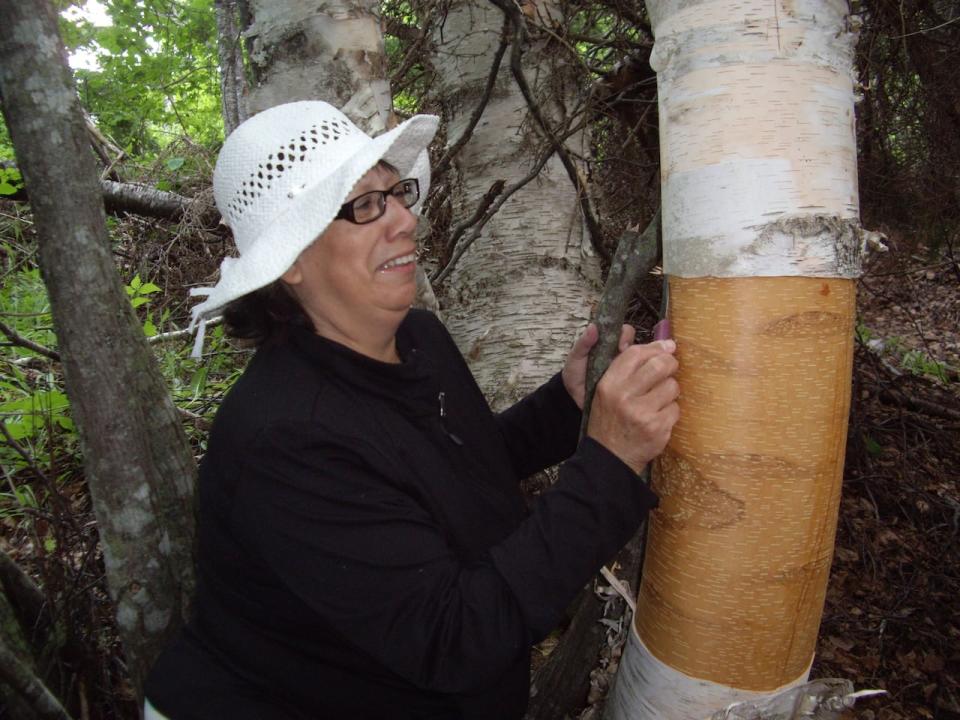Black First Nation's member wins racial discrimination case against N.S. band
The terrifying scene unfolded in the yard of the Currie family home on a reserve in southwest Nova Scotia: a white neighbour hurling racist slurs, including the N-word, threatening to kill them and their dogs as he churned up the ground with his all-terrain vehicle.
But what Matthew Currie, who is of Mi'kmaw and Black descent, found equally disturbing was what he saw as the tepid response from the leadership of his small First Nation, which refused to bar the perpetrator from community hubs on the reserve.
Even though the neighbour was charged with threats and inciting hatred following the 2020 incident, and was forbidden by police from going near the family, he could still attend community events like Christmas and harvesting festivals. Currie's two sons were so afraid of him they would leave instead of risking an encounter.
"I felt like they were protecting him over me and my family," Currie said in an interview.
For Currie, the situation was all the more galling because the very sanctions Bear River First Nation declined to impose on his neighbour, a white non-band member, had been handed to Currie two years earlier over allegations he'd intimidated and bullied band employees.

The 48-year-old is now feeling a sense of vindication following a Canadian Human Rights Tribunal ruling that found he was the victim of racial discrimination when in 2018 the First Nation prohibited him from entering the band office, cultural and education centres, and the local gas station.
The human rights tribunal has ordered Bear River to pay Currie $30,000 and to effectively lift the ban, ruling the band council suffered from an "unconscious bias" that Black men are dangerous after he became frustrated over his access to services.
During the six-year prohibition, Currie was forced to miss Christmas celebrations, elder appreciation dinners and harvest festivals, and was told he couldn't join a community moose hunt. He couldn't attend an on-reserve celebration of high school graduates that included his son.
"Feeling isolated and away from our community has been very damaging for us mentally, physically and health-wise," he said.
The band, through its lawyer, McInnes Cooper partner Ian Pickard, declined to comment on the case. Band councillor Carol Ann Potter, who testified at the human rights hearing, also declined to comment.
First Nation wants ruling overturned
Bear River First Nation is seeking to have the ruling overturned by a Federal Court judge. In court documents, it argues there was no racial discrimination or unconscious bias, and the tribunal member who adjudicated the case, Catherine Fagan, made multiple errors.
The band disputes aspects of the decision, and said there is no evidence to suggest they treated Currie like a dangerous criminal, or "expressed" unconscious bias and stereotypes about violent Black men.
It said Currie had been warned previously about "inappropriate behaviour," and Bear River has the authority to set parameters for how someone should act when they are in band establishments.
In the tribunal decision released last month, Fagan found Currie could at times be rude and upset with band employees, and noted allegations he once called the band administrator "malicious" and suggested one band councillor was involved in criminal activity.
But his behaviour did not justify barring him from the four locations, Fagan ruled, especially given there were other community members accused of far worse who were only warned by the band and not sanctioned.

Kerwyn Currie, Matthew Currie's 22-year-old son, said in an interview the ruling is "a long time coming" as it shines light on what's been a deeply difficult period for his family, and there is relief the details of what happened have finally been made public.
"I hope we get treated like normal community members, treated like part of the community," he said.
In the decision, Fagan pointed to situations where she said band staff overreacted. In one case, an employee testified Matthew Currie's posture was "intimidating," but according to the decision couldn't explain why.
In another case, when Currie was trying to get his kitchen water turned back on following a repair, the band administrator viewed his email as "inappropriate and aggressive" because he'd used bolded font, according to the decision.
Fagan said she didn't believe band employees and council thought their reactions to Currie were influenced by race, but "more likely than not, when viewed as a whole, there was an unconscious bias at play" when Bear River issued the ban.

Currie said he grew up in the community of Lequille, N.S., near a part of Bear River First Nation, and later met his wife in Ontario before moving back to Nova Scotia and eventually into a home on the First Nation.
He is a band member, as is his mother. His family lineage, he said, includes Ben Pictou, a prominent Mi'kmaw chief who died in 1931 at the age of 100. His said his ancestry also dates back to the Black Loyalists who arrived in Nova Scotia in late 1700s following the American Revolutionary War.
The notice prohibiting Currie from entering certain locations was issued by Bear River was under Nova Scotia's Protection of Property Act. The decision notes Bear River had issued notices against only one other person, who Currie said had been charged with attempted murder, an allegation the First Nation did not deny.
Three other community members had been issued warning letters, with a band administrator testifying they were related to violent and criminal activity, including a case of child trafficking, according to the decision.
Fagan found the band's apparent reluctance to deal with the threatening neighbour, Anthony Roy Baker, 63, who showed up a second time at the Currie home a few months later, was retaliation for Currie's decision to launch a human rights complaint against the First Nation.
Bear River sent an employee to tell Baker's son that his father "needed to behave," but no one from band council or staff spoke or wrote to Baker himself, according to the decision. The band viewed the police undertaking ordering him to stay away from the Currie family as sufficient.
"While council acted quickly in response to any incident between staff and Mr. Currie, they refused to provide similar protection to an entire family that had been subjected to multiple racist and criminal acts," the decision said.
Baker pleaded guilty in 2021 to mischief and uttering threats, and was handed a 12-month conditional sentence.
MORE TOP STORIES


